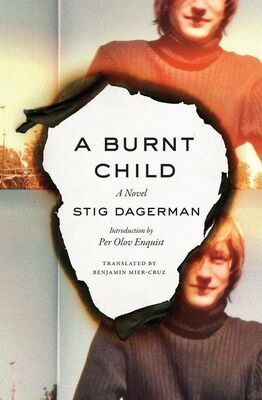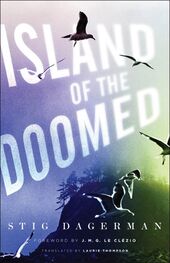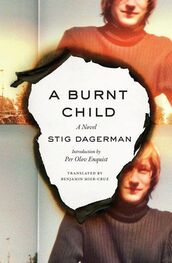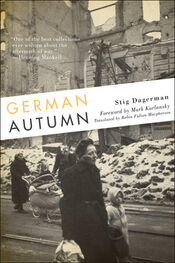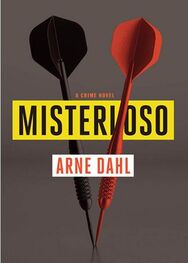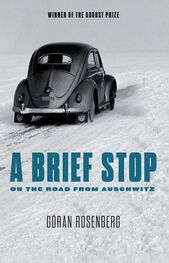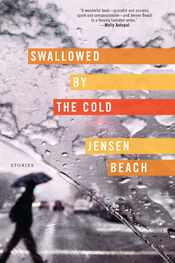My boy, he says once again.
And those words contain everything—all questions, all answers, all affection, and all worries. They infect each other with their joy, and the warmth turns into heat. But the hotter it becomes, the deeper the silence becomes. Words can no longer express what they are feeling. Only their eyes and their hands, which are in a tranquil embrace. Before the father leaves, he tucks the son in, wrapping the blanket tightly around his body. He has always wanted to do that, longed to be allowed to do it, but never dared. Then he turns out the light and walks out.
It’s twenty-two below, he whispers in the darkness.
The yardstick clicks. The door closes. It’s only fifteen below, but he is overjoyed.
When Berit sits down on his bed, he spreads the blanket over her lap. It makes her knees softer and even warms them up. She hasn’t slept much, and she had absurd dreams. She doesn’t ask him why. Nor does he tell her why. But a knot has come undone, so he asks her to retie it. As she ties it, he feels how cold her hands are, so he puts them underneath his blanket. They rest there like cold stones. Once they are warm, he pulls her up to him. Her body is tepid, like the masonry heater early in the morning.
Poor Berit, he says.
She starts to cry. It’s good for her to cry because the tears release her joy. She starts to warm up once she finished crying, bashfully caressing him as the heat returns to her.
I’m going to buy some grapes for tonight, she whispers, a big cluster.
Then she gently parts from him. He strokes her thighs, which are now softer than they have ever been before. He also fondles her breasts, and they swell up.
Don’t be afraid, he whispers. And don’t be cold. It’s only five below outside. That’s what Papa said.
It’s already light by the time Gun comes. The air is crisp and clear, and the window is covered with roses. It’s very warm underneath the blanket. She rests on his good arm, untroubled and unafraid. Her pink robe lies on the floor like a poor, broken soul. But they themselves are whole, and the brighter it becomes the more whole they become—and more pure. Hour after hour passes in silence. They don’t speak much because there isn’t a lot to say. And whatever could be said, they already know. They know that they are mother and son, and they know it with open eyes. And they aren’t afraid of it, because we are never afraid of what we truly know. We are only afraid before we know it. But to know for certain costs us dearly. It costs us blood and tears, but it’s worth the price.
To know also hurts. Her cheek still stings from the lashing, but the pain is strangely sweet. She knows that it has to be so. It has to hurt to gain a son. She tenderly strokes his aching wrist. Then he dares to caress her cheek, and she finds the courage to describe her joy—and her loneliness. She is bold enough to explain about the cold, lonely mornings when he isn’t there. About the tepid heater, the cold bed, the frost on the windowpanes, and the snow that whirls down from the rooftops to the frozen cars below, about the room that peers at her with cold eyes, about all the things she refuses to touch because they belong to someone else, about her fear of the telephone and the receiver that always seems to be warm from someone else’s ear, about the vase she smashed against the wall to be rid of its owner, and about the opera glasses she stole from the bookcase and used every night to peer down at the street and make people look big so that they would be closer to her and she would be less alone. She also explains about the husband, the cold husband, whose laughter is a frozen cry and who thinks that to comfort her means to grow cold. Regarding the furniture, he appeased her, saying that it cost nine hundred kronor in 1929. Soon, he would reassure her about the apartment, too, telling her that the rent happens to be the most affordable in the city. Then he would reassure her that that which is dead is dead. Lastly, she speaks of her own coldness, of life’s great white icebox—she herself is twenty-two below. And of her yearning for something else. It writhes inside her like an imprisoned snake—which may be squirming inside us all.
Mama, he whispers, embracing her like a son.
Then their heat erupts. Their white desert begins to thaw. And look, the desert is blooming. Their desert is precious to them, and though they love each other very much, they mostly love their desert. They are not happier than before, not better either, but they are a lot less foolish. Warm and wise, they lie and look up at the white ceiling, the neighbor’s floor, on top of which a sick child is dancing. Wise, because wisdom is to be in love with life, whereas foolishness is to be ashamed of love.
They are not only wise but silent, too, because our landscape is suffused with silence after a volcanic eruption. A moment ago, there was fire. Now the tepid ashes warm our feet. A moment ago, there was blinding light. But now a blessed twilight cools our eyes. Everything is calm again. The volcano is slumbering. Even our poor nerves are slumbering. We are not happy, but we feel momentary peace. We have just witnessed our life’s desert in all its terrifying grandeur, and now the desert is blooming. The oases are few and far between, but they do exist. And although the desert is vast, we know that the greatest deserts hold the most oases. But to discover this, we have to pay dearly. The price is a volcanic eruption. Costly, but nothing less destructive exists. Therefore, we ought to bless the volcanoes, thank them because their light is dazzling and their fire is scorching. Thank them for blinding us, because only when we are blind can we gain our full sight. And thank them for burning us, because only as burnt children can we give others our warmth.
But the moments of peace are fleeting. All other moments are significantly longer. Understanding this is also wisdom. But because they are so short, we must live in these moments as if it were only then that we lived. They understand this, too.
Therefore, they do not answer when Berit calls.
They will not answer when Knut calls either.
And when the aunts call, they will let it ring.
STIG DAGERMAN(1923–1954) was regarded as the most talented writer of the Swedish postwar generation. Among the many books he wrote during his tragically short life are his classics German Autumn (Minnesota, 2011) and Island of the Doomed (Minnesota, 2012).
BENJAMIN MIER-CRUZteaches Scandinavian literature and Swedish language courses at the University of California, Berkeley. He was awarded the Susan Sontag Prize for Translation in 2010 for his translation of the poetry and letters of Elmer Diktonius.
PER OLOV ENQUISTis a novelist, playwright, and poet. His works include Lewi’s Journey and the international best-seller The Royal Physician’s Visit. His awards include the August Prize, the Prix du Meilleur Livre Étranger, the Independent Foreign Fiction Prize, and the Swedish Academy’s Nordic Prize.
